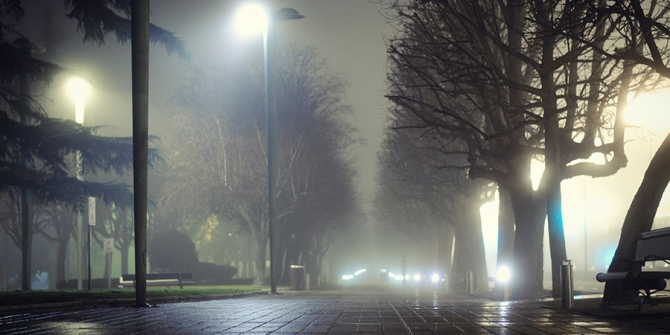Mathew Colley, LONEALERT’s Sales & Marketing Manager, discusses what employers need to consider to protect their workforce now the seasons have changed.
Winter is well and truly here. The alarm clock has apparently started sounding in the middle of the night, the morning routine now includes the 10-minute rigmarole of defrosting frozen car windows and trips to and from work are conducted under a veil of darkness.
With darkness now arriving mid-afternoon, those summer evenings spent bathed in warmth and sunlight in beer gardens are nothing but a distant memory.
But these seasonal changes have far greater implications than just annoyance to the daily routine or a change in social settings - they have a huge impact on our working conditions. It is therefore vital that employers consider these increasing environmental risks when it comes to deciding how best to protect their workforce, especially those lone workers who will carrying out their jobs and battling the elements alone.
Winter brings with it a whole host of extra risks for workers. Shorter hours of daylight all increase the potential for accidents, including slips, trips and falls. When visibility is poor, there is a heightened risk of accidents in unlit areas - as well as less chance of injured workers being spotted by passers-by should an incident occur. As an employer, if one of your lone workers fell and injured themselves, have you equipped them with the right solution to allow them to send for help immediately? Additionally, these shortened daylight hours can increase the potential for aggressive or threatening situations to arise for some lone workers, such as those working out and about visiting clients. Take an estate agent, for example, showing potential buyers around homes. Their roles put them at a potential risk all year round, as they travel to unfamiliar locations to meet with strangers. But add in these winter conditions, which may see them having to travel through dimly-lit streets or dark alleyways to get to their meetings, and it may be that extra considerations need to be made or policies reviewed to ensure they are never left vulnerable. Is it better to reschedule their appointment for the next day rather than have them out in unfamiliar locations in the dark? If a threatening situation does arise, can your lone worker discreetly call for help so help can be sent?
Temperatures are dropping rapidly and for lone workers working outside, these freezing conditions and biting winds increase fatigue and makes the use of hand-held machinery increasingly dangerous and difficult. Buildings and utilities can also suffer from frozen pipes and heating systems that break down and fail to work.
Have you ensured your lone workers are not facing unnecessary risks during the winter by providing them with the correct, properly maintained equipment and means to call for help if needed?
Winter brings with it more rain, snow, ice and wind - all of which can affect lone workers, especially those travelling long distances in potentially treacherous conditions on roads or those working outside all day. As an employer, you have a duty of care to your workforce and to ensure systems are in place to protect them from harm.
Robust procedures are imperative to protect lone workers all year round, but particularly during these winter months when they are facing so many extra risks. The good news is that there are so many devices and solutions available to protect lone workers from all walks of life, whether it be the discreet ID badge that allows the wearer to raise an immediate panic alarm secretly to specially-trained operators, robust motion-sensitive devices that detect falls and raise the alarm or solutions that can track workers in even the remotest locations with no mobile phone signal or other means of getting help. All lone workers have the right to feel safe when they go to work, whatever their job role - and whatever the weather.
Are your lone workers safe? Find out how we can help by calling 0330 999 8484, emailing [email protected] or visiting www.lonealert.co.uk







